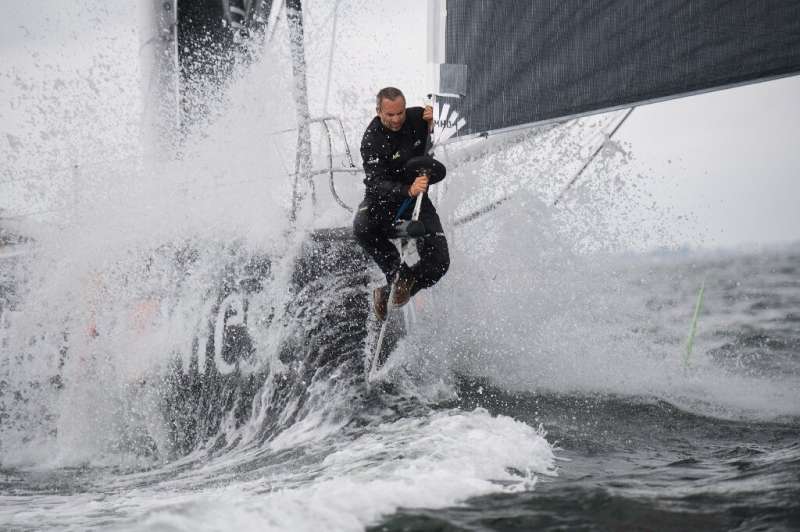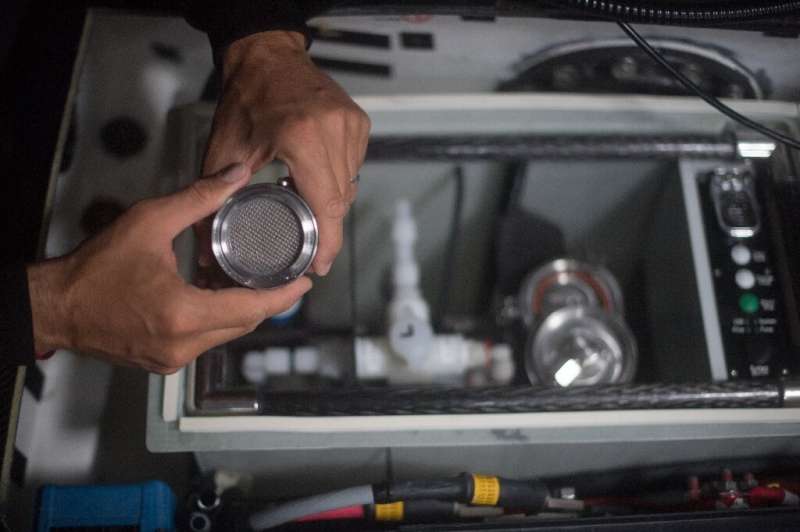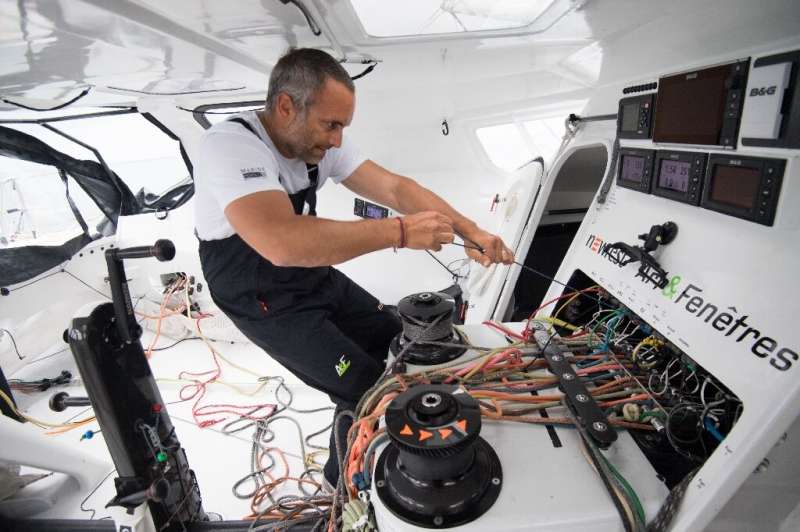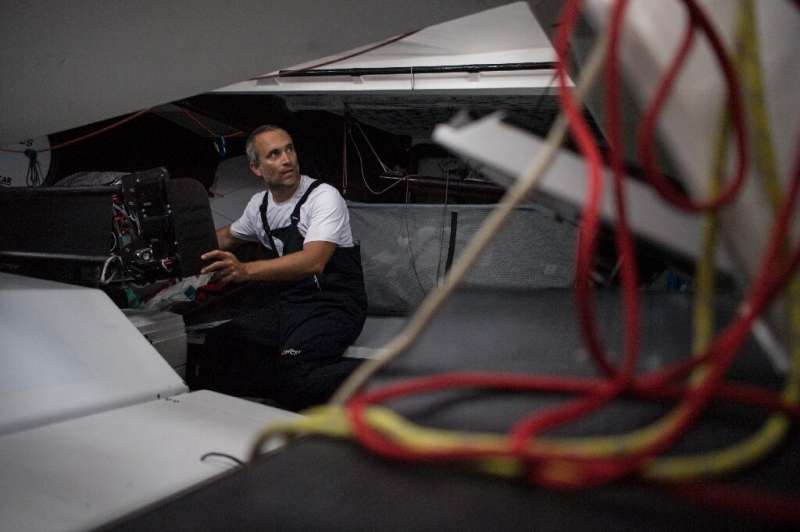Plastic-tracking yacht adds splash of environmentalism to ocean racing

When he sets sail alone for a gruelling round-the-world yacht race this year Fabrice Amedeo will have a scientific mission to add to his sporting goal: collecting microplastics.
His boat has been specially-fitted with equipment to filter and store an array of plastic samples from remote areas of open water to help scientists map the scope of man's pollution of the oceans.
Extensive studies have already confirmed the presence of minute plastic particles in the bodies of living organisms throughout the world's oceans, even in the deepest reaches of the Pacific's Marianas Trench.
But researchers are hoping to learn more about which areas are most contaminated with the remnants of the some eight million tonnes of plastic that end up in the ocean each year.
Like other skippers, Amedeo has already helped track CO2 levels and water temperature when out on the water.
But for the next Vendee Globe race, which is due to leave from France's west coast on November 8, his Imoca monohull yacht has been fitted with a new system that pumps seawater from the front keel through three filters of 300, 100 and 30 microns to trap microplastics.
Amedeo will have to change them every 12 hours and store the samples during the estimated 85 days of his solo race around the world.

"It's real work," the former journalist told AFP aboard the 60-foot boat in Brittany.
He said he wanted to give something back to the ocean.
"I will have to focus on something other than competition so it's true that it has an impact, but I think it's really worth it."
Cargo ships have been equipped with sensors for a long time to support scientific research.
But "sailboats are less environmentally intrusive and go to regions where merchant ships do not," said Thierry Reynaud, a researcher from France's ocean science institute Ifremer.
Reynaud's work will be helped by temperature and salinity data from the yacht, but the boating fan had other reasons to be enthusiastic about joining over a dozen colleagues involved in the project on board in late June.
"I am passionate about sailing, so touching an Imoca is like touching a thoroughbred," he told AFP.

Race against pollution
When it comes to plastic pollution, some areas are better studied than others.
The "Great Pacific garbage patch" for example, a floating trash pile twice the size of France that swirls in the ocean halfway between California and Hawaii, has attracted infamy and high profile clean up efforts.
But in other regions "we have a glaring lack of data", especially in the Indian Ocean and the South Atlantic, said Christophe Maes, physicist oceanographer at France's Research Institute for Development.
"These big races will allow us to get snapshots of the whole circulation" of plastics, and to learn more about the ocean currents which transport them, he added.
Before mapping can be undertaken, laboratories will have to analyse the samples collected in order to identify and quantify them: polystyrene, polyamide, polyethylene...

"Unfortunately it is done by hand," said Catherine Dreanno, from Ifremer, smiling. In fact it takes half a day to go through each sample.
Regardless of their field of study, the researchers gathered on Amedeo's boat all agreed that installing sensors on racing yachts that crisscross remote waters provides valuable information.
To encourage this approach, the Intergovernmental Oceanic Commission of UNESCO and the association Imoca—which manages races of monohulls of the same name—signed a partnership to promote ocean sciences in January.
Martin Kramp, coordinator of the UN's Joint Technical Commission for Oceanography and Marine Meteorology observation programme, wants the collaboration to go further.
"I hope that for the Vendee Globe 2024 there will be a new rule that makes a scientific contribution compulsory," he said.
© 2020 AFP




















